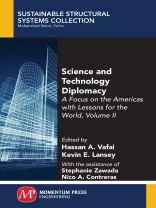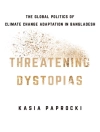Science diplomacy and policy can support collaborative national and international science for advancing knowledge with societal impact in fields such as climate, space, medicine, and the environment., Scientific advances made possible by the basic and applied research carried out by government agencies, universities, and nongovernmental organizations create opportunities and challenges with growing impact on policy decisions. Developing structures that produce the best science information to policy makers is becoming more critical in an ever-changing world. This three-volume set presented by prominent figures from the disciplines of science, engineering, technology, and diplomacy includes their perspectives on potential solutions to opportunities 21st-century scientists, engineers, and diplomats face in the future: To shed light and interface science, technology, and engineering with the realm of policy; To provide a vision for the future by identifying obstacles and opportunities while focusing on several key issues.
A propos de l’auteur
Kevin E. Lansey is professor of the Department of Civil Engineering and Engineering Mechanics. His interests are related to water supply planning, water-energy links, and water distribution systems design, operation, and monitoring. He has published over 100 journal articles, 10 book chapters, and two textbooks in those areas. For his contributions, he was awarded the ASCE Huber Civil Engineering Research Prize for Young Researchers in 2002.












